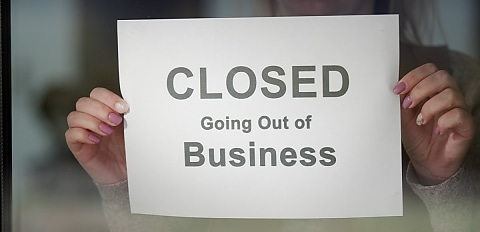CreditorWatch’s July Business Risk Index (BRI) has revealed that 87.2 per cent of Australian regions will experience an increase in business failure rates over the next 12 months.
“The fact that almost 90 per cent of regions will see an increase in the rate of business failures indicates that the current pressures from interest rates, cost increases and declining consumer demand are being acutely felt right around the country – particularly those areas with younger populations and a higher proportion of businesses in high-risk sectors,” said CreditorWatch CEO Patrick Coghlan.
“Our hope is that the Stage 3 tax cuts will continue to boost consumer confidence to some extent, but we don’t expect a significant improvement in conditions for businesses until the impacts of one or two rate cuts are felt by households.”
Queensland is reported to be hit hardest. The average failure rate at the moment for the states is:
- Queensland (5.09 per cent)
- NSW (5.05 per cent)
- Victoria (4.59 per cent)
- Western Australia (4.48 per cent)
- South Australia (4.31 per cent)
- Tasmania (4.03 per cent)
However, each region is predicted to see an increase, with forecast rates as:
- Queensland (6.00 per cent)
- NSW (5.71 per cent)
- Western Australia (5.58 per cent)
- Victoria (5.31 per cent)
- South Australia (5.02 per cent)
- Tasmania (4.76 per cent)
CreditorWatch chief economist Anneke Thompson said that consumer confidence is expected to subside for the foreseeable future.
“Consumer confidence is still incredibly low, even though consumers reported to Westpac in its August survey that confidence was slightly up. While consumers are now less fearful of an increase in interest rates, and also report a small positive sentiment increase from tax cuts, the increase in confidence is not nearly enough to suggest that household consumption will recover any time soon,” said Thompson.
“As long as households are spending less, and we know from retail trade data that spending per head of population has decreased for eight straight quarters, businesses will continue to battle high interest rates and continuing high input costs with falling demand.”
Western Sydney and South-East Queensland are reportedly likely to be hit hardest by business failures in the coming year. Meanwhile, the areas forecast to be safest from these trends are mainly located in regional parts of Australia.
CreditorWatch also revealed that the average value of invoices held by businesses has dropped 51.5 per cent throughout the year. This highlighted declining consumer demand.
Food and beverage services were the industry that topped the failures list, at 8.3 per cent. Following were arts and recreation services (5.8 per cent) and administrative support services (5.6 per cent).
[Related: Long-term business confidence lacking as pressure mounts]

